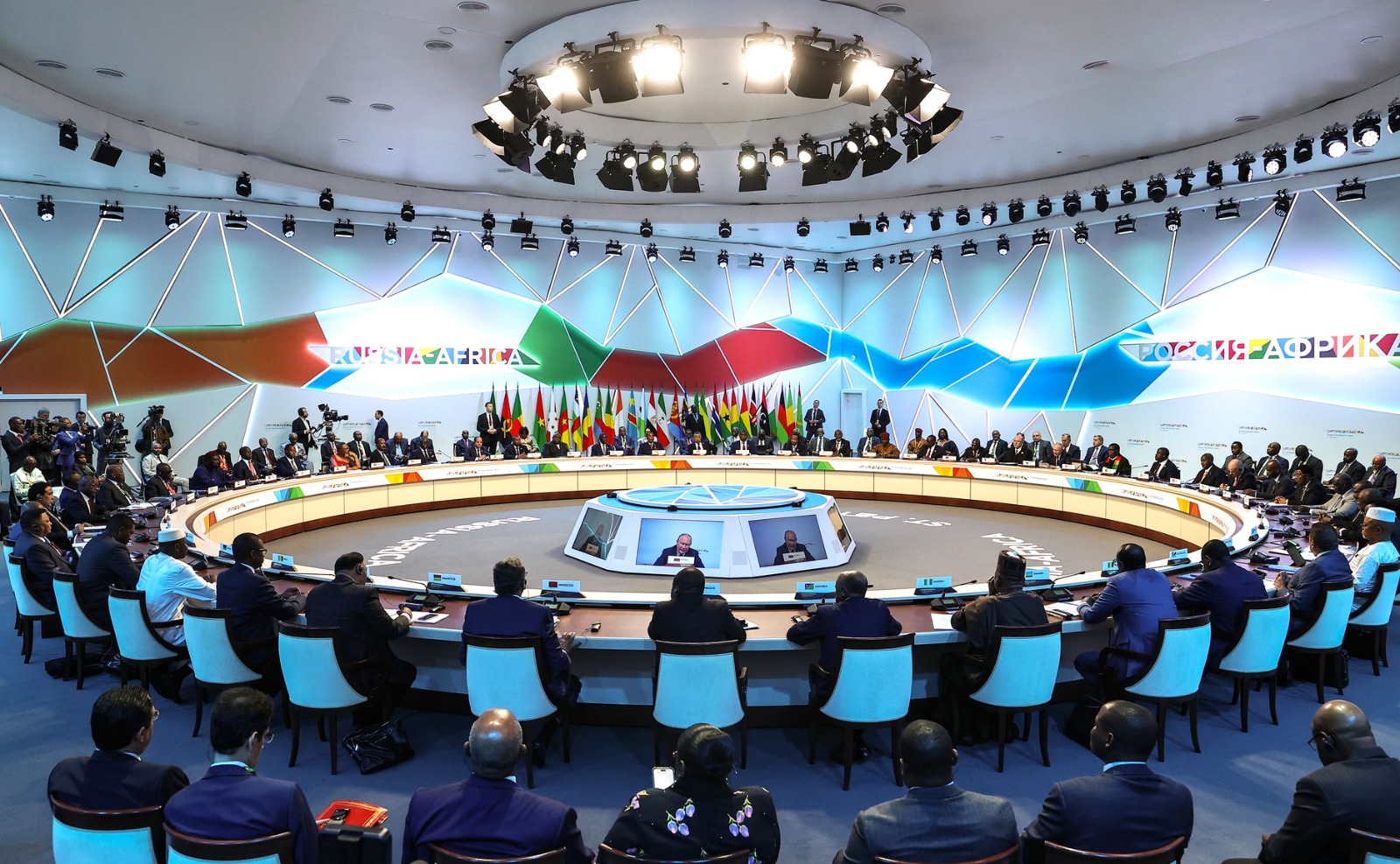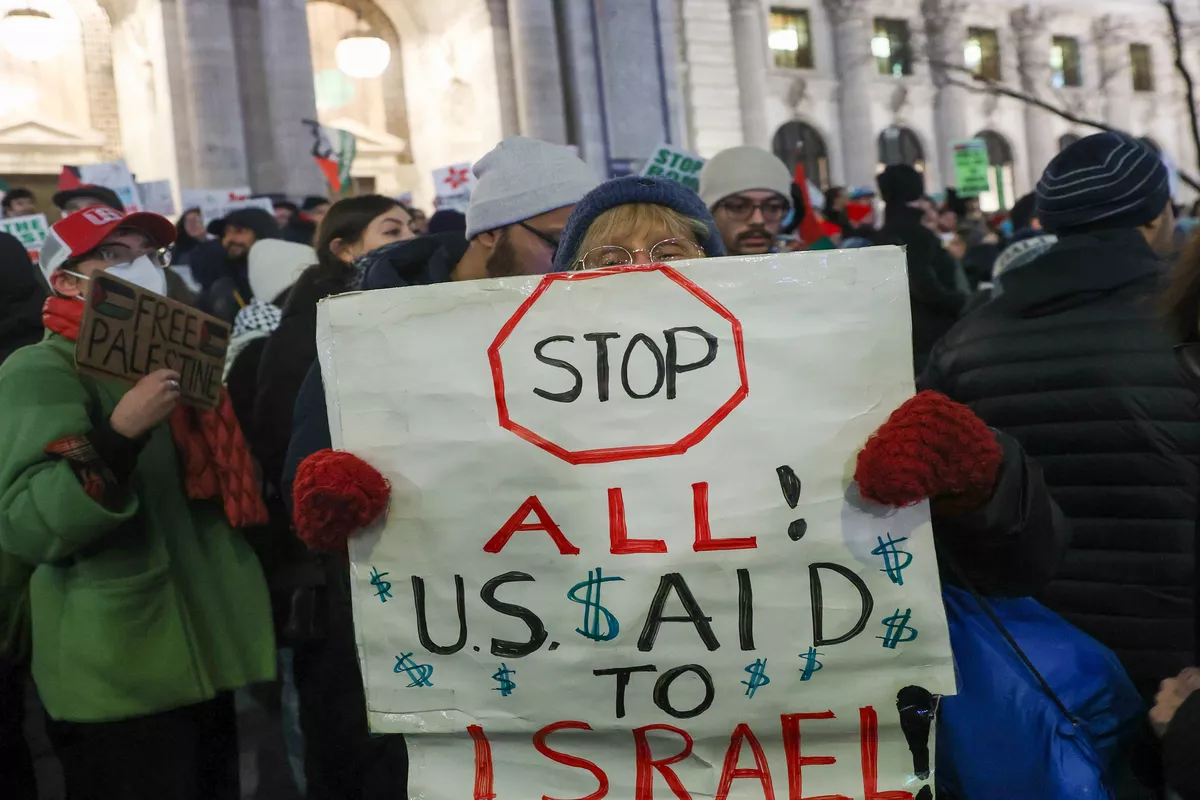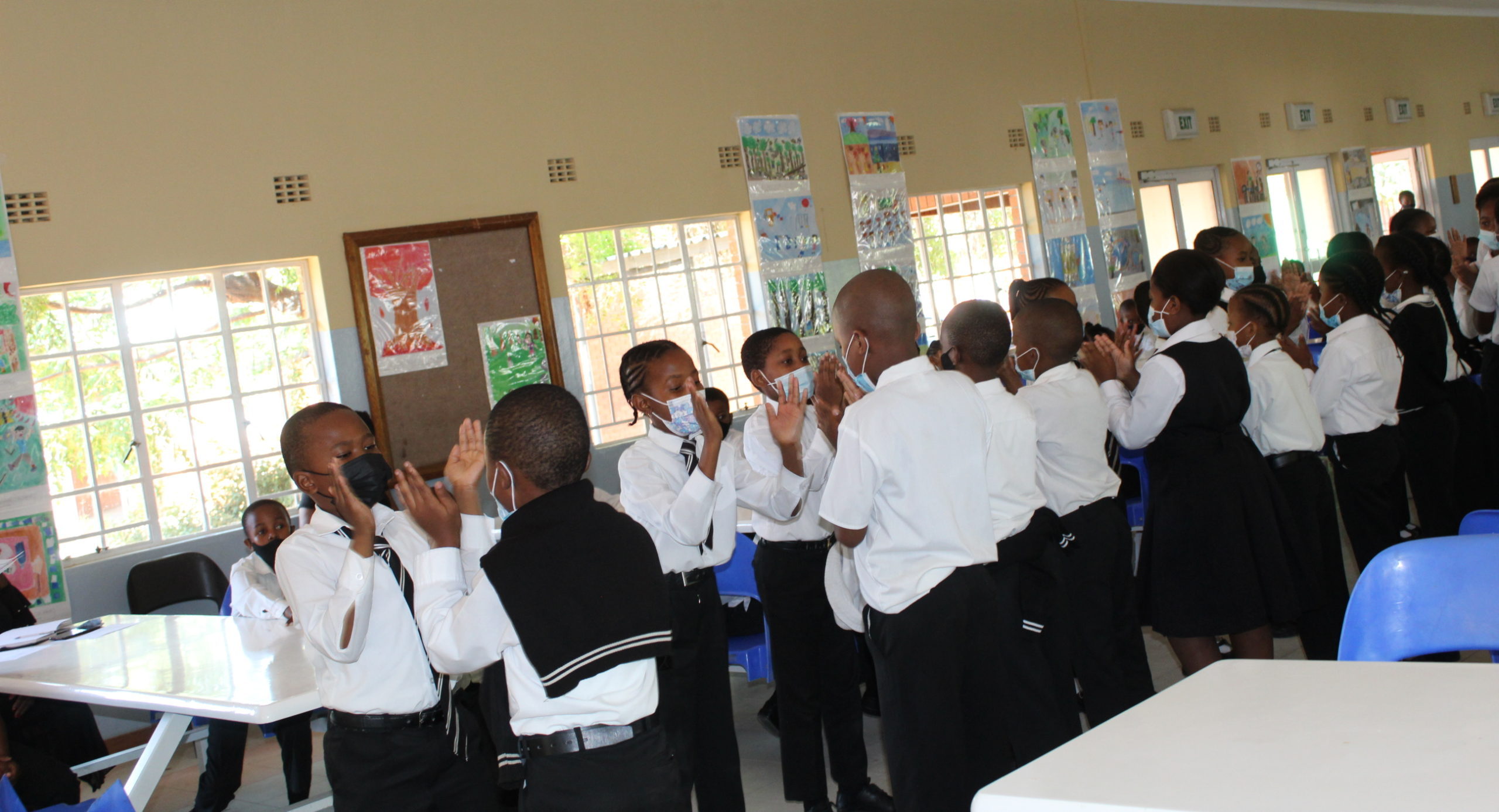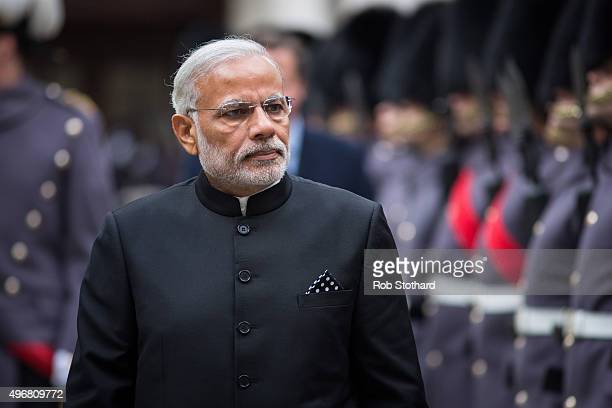
President-Putin-meeting-African-leaders-at-the-second-Russia-Africa-Summit.jpg
The Pan Afrikanist Watchman
St. Petersburg hosted the Second Summit and Russia–Africa Economic and Humanitarian Forum on 27–28 July 2023. This marks the second time that events of such a magnitude with a focus on a wide range of relations between Russia and the countries of the African continent have been held.
Despite unprecedented pressure from the West, the Forum and Summit were attended by official delegations from 48 countries (27 countries were represented by the head of state or the second highest official) and the five largest integration associations of the continent.

The Summit consisted of two plenary sessions held on 28 July 2023. Russian President Vladimir Putin, Chairperson of the African Union and President of the Union of the Comoros Azali Assoumani, Chairperson of the African Union Commission Moussa Faki Mahamat, and the heads of state from African countries spoke during the first part of the Summit. Discussions continued in the format of a working breakfast during the second meeting of the Summit.
“We had a substantive and engaging exchange of views on the entire range of themes of strategic cooperation between Russia and African countries. We have identified the main areas for further joint work and outlined plans to strengthen foreign policy coordination and increase trade and investment flows, as well as industrial cooperation between Russia and the countries of the [African] continent.
“We greatly appreciate the results of our joint work at the Summit. I firmly believe that the results we have achieved will form a good foundation for the further deepening the Russian-African partnership in the interests of the prosperity and well-being of our peoples,” Russian President Vladimir Putin said in his closing speech at the second plenary session of the Summit.
During the discussions, the participants declared their commitment to jointly building a new, fairer multipolar architecture of the world order based on the sovereign equality of states and mutually beneficial cooperation.
The Summit resulted in the adoption of five key documents:
- Declaration of the Second Russia–Africa Summit
- Declaration of the Second Russia–Africa Summit on the Prevention of an Arms Race in Outer Space
- Declaration of the Second Russia–Africa Summit on Cooperation to Ensure International Information Security
- Declaration of the Second Russia–Africa Summit on Strengthening Cooperation to Combat Terrorism
- Action Plan of the Russia–Africa Partnership Forum for 2023–2026
Two documents were also signed with leading African integration associations in Vladimir Putin’s presence and these are:
- Memorandum of Understanding between the Russian Government and the Intergovernmental Authority on Development (IGAD) on fundamental issues concerning relations and cooperation
- Memorandum of Understanding between the Russian Government and the Economic Community of Central African States (ECCAS) on fundamental issues concerning relations and cooperation
The business programme of the Russia–Africa Economic and Humanitarian Forum featured discussions on how to unleash the potential of Russian-African cooperation. A humanitarian dimension was added to the traditional political and economic focuses.
The central event of the Forum was the plenary session, which was attended by Russian President Vladimir Putin, Chairperson of the African Union and President of the Union of the Comoros Azali Assoumani, Patriarch Kirill of Moscow and All Russia, President and Chairman of the Board of Directors of the African Export-Import Bank Benedict Oramah, and New Development Bank President Dilma Rousseff. The meeting was moderated by Director of the Institute for African Studies of the Russian Academy of Sciences Irina Abramova.
“This marks the second time that Russia is hosting events in the Russia–Africa format. This year, the discussions of the Economic and Humanitarian Forum were full of practical proposals, particularly in the humanitarian and technological fields, and generated significant interest from representatives of business and the scientific community.
“Over 9,000 participants and media representatives from Russia and 104 foreign states and territories took part in the events this time. The participants included around 1,000 representatives of foreign business, more than 2,000 [representatives of] Russian [business], roughly 1,100 representatives of foreign official delegations, and more than 750 Russian [delegations],” said Anton Kobyakov, Adviser to the Russian President and Executive Secretary of the Organising Committee for the Russia–Africa events.
A total of 59 panel sessions were held with 457 speakers in four main areas: ‘The New Global Economy’, ‘Cooperation in Science and Technology’, ‘The Humanitarian and Social Sphere: Working Together for a New Quality of Life’, and ‘Integrated Security and Sovereign Development’.
Events held on the side-lines of the Forum and Summit included the Media Forum, the Congress of University Rectors, a roundtable attended by the supreme audit institutions of Russia and African countries, youth programme events, and sessions of the Creative Business Forum and the Healthy Life Forum.
The cultural and sports programme featured the St. Petersburg Seasons Festival, a race organised by the Roscongress Foundation jointly with the League of Heroes, and the Ladoga Gold International Multi-Stage Professional Cycling Race.
The Forum resulted in the signing of 161 agreements that do not constitute commercial secrets (146 agreements with foreign organizations and authorities), although the value of the agreements was not disclosed. Most of the agreements were for humanitarian cooperation, with the largest number of agreements concluded in the following industries:
- International and interregional cooperation – 56
- Education and science – 51
- Scientific and technical cooperation – 10
- Exports and foreign economic activity – 10
Sports programme
During the Forum’s sports programme, Russian Minister of Sports Oleg Matytsin, President of the Russian Rhythmic Gymnastics Federation Irina Viner, and Russian Olympic Committee President Stanislav Pozdnyakov discussed expanding cooperation with African colleagues at the session ‘Sport: A Bridge of Friendship between Russia and Africa’.
The session was highlighted by the presentation of the Friendship Games, which will be held in September 2024 in Moscow and Yekaterinburg. The new flagship project for Russian sports was presented by its initiator, International Boxing Association President Umar Kremlev and General Director of the Friendship Games Organising Committee Alexey Sorokin. The Roscongress Foundation and the Friendship Games Organising Committee signed a cooperation agreement.
The pavilion of the Russian Ministry of Sports served as a platform for negotiations and the presentation of new sports projects.
On the first day of the Forum, more than 1,000 people attended the five-kilometre ‘We Are Starting’ morning race. Three-time Olympic synchronised swimming champion Svetlana Kolesnichenko got everyone warmed up for the race. Sergey Shevchenko from Belarus won the inaugural Ladoga Gold International Multi-Stage Professional Cycling Race, which passed more than 1,000 kilometres around Lake Ladoga.
Teams from Ghana, Cameroon, and Mali took part in the Russia–Africa student football festival, which was won by a team from Kuban State University. Football stars Andrey Arshavin, Alexander Mostovoy, Dmitry Sychev, MacBeth Sibaya (South Africa), Dame N’Doye (Senegal), and Chidi Odiah (Nigeria) competed together with the Forum participants in a gala match between the Russian and African teams. A stage of the Russian beach volleyball championship was also held as part of the Forum.
Youth programme
The youth programme featured panel discussions and roundtables with young Russian and African leaders on education, science, and technology. The planned events also included a presentation of the World Youth Festival, which will be held in Russia in 2024 and bring together the most progressive youth from around the planet.
Cultural programme
The St. Petersburg Seasons Festival was held on 25–29 July as part of the Second Summit and Russia–Africa Economic and Humanitarian Forum. The programme events aimed to show residents and guests of the Northern capital the whole palette of vibrant African culture – from traditional cuisine to contemporary art. Lenfilm Studio hosted the Days of African Culture and Cinema on 25–28 July.
Over the course of the four days, a wide panorama of African cinema was presented, ranging from the work of independent studios with a budget of USD 200 to the hits of the Cannes Film Festival.
The Innopraktika School’s Third Global Values International Ballet Festival was held on the main stage of the Alexandrinsky Theatre in St. Petersburg on 28–29 July. Cultural exchanges between students from Russia and other countries were a key aspect of the festival.
Visitors were treated to a riveting programme of original productions from the best choreographers of Russia and other countries, the world premiere of Boris Eifman’s ballet ‘My Jerusalem’, and other special guests.
The Rhythms of Africa Festival took place on Moskovskaya ploshchad on 29 July and culminated with a spectacular concert featuring original compositions performed by African musical groups, world premieres by St. Petersburg composers, and works on African themes performed by the Governor’s Symphony Orchestra conducted by Alexey Nyagi.
The concert programme included a performance by the Zambian student group Sounds of Dreams, the finalists of the ‘Singing in the Kitchen Across the Country’ TV show.
In addition, the Second Summit and Russia–Africa Economic and Humanitarian Forum included the ‘Stars of Africa’ gastronomic project, which introduced St. Petersburg residents and guests to the best traditional dishes of the African continent. More than 20 restaurants in St. Petersburg were offering tastings of the dishes.
Media
The Second Summit and Russia–Africa Economic and Humanitarian Forum generated extensive press coverage. A total of 2,031 media representatives were accredited for the events (1,383 Russian, 456 African, and 192 media outlets from other countries) from 462 organizations (203 Russian and 259 foreign organisations). Applications were received from 55 countries.
Exhibition
More than 50 exhibition stands on key areas of Russian-African cooperation were presented at the Forum venue.
Fuel and energy industry: Rosatom State Corporation, Gazprom, and NOVATEK
Medicine: Healthy Life stand, which presented 25 leading medicine and pharmaceutical organisations
Financial sector: Sberbank, Gazprombank, Afreximbank, and Goznak
Metallurgical segment: United Metallurgical Company, Novostal-M Metallurgical Holding, and others
Chemicals: PhosAgro, Arnest, Uralchem, and Uralkali
Agribusiness: Rostselmash
IT sector: Positive Technologies, Dr. Web, Geoscan, and others
Transport industry: KAMAZ, Avtovaz, Ural Automobile Plant, Russian Railways, and other companies
The guests were particularly interested in the collective exposition of African countries, where 23 African states presented their achievements, including the People’s Democratic Republic of Algeria, Burkina Faso, Republic of Burundi, Republic of Malawi, Republic of Zimbabwe, Republic of Equatorial Guinea, United Republic of Tanzania, Republic of Tunisia, Republic of Namibia, Republic of Mozambique, Federal Democratic Republic of Ethiopia, Republic of the Congo, Federal Republic of Nigeria, Republic of Mali, Republic of Senegal, Republic of Seychelles, Republic of Kenya, Democratic Republic of the Congo, Islamic Republic of Mauritania, Arab Republic of Egypt, Kingdom of Eswatini, Federal Republic of Cameroon, and Republic of Ghana.
The Russia–Africa Economic and Humanitarian Forum was held with the support of the following general partners: Gazprom, Gazprombank, Rosatom State Corporation, UCC Uralchem, and Uralkali; the following strategic partner: Rosseti; the partners: LUKOIL, NOVATEK, and Sberbank; the national partner: AVTOVAZ; and the organizational partners: African Export-Import Bank (Afreximbank) and Russian Export Centre.
The Roscongress Foundation organised the Second Summit and Russia–Africa Economic and Humanitarian Forum.
Event website: summitafrica.ru
Background information:
The Roscongress Foundation is a socially oriented non-financial development institution and a major organizer of nationwide and international conventions, exhibitions, and business, public, youth, sporting, and cultural events. It was established pursuant to a decision of Russian President Vladimir Putin.
The Foundation was established in 2007 with the aim of facilitating the development of Russia’s economic potential, promoting its national interests, and strengthening the country’s image. The Foundation comprehensively evaluates, analyses, and covers issues on the Russian and global economic agendas. It also offers administrative services, provides promotional support for business projects and attracting investment, and helps foster social entrepreneurship and charitable initiatives.
The Foundation’s events bring together participants from 208 countries and territories, more than 15,000 media representatives work at the Roscongress Foundation’s platforms each year, and 5,000 experts are involved in analytical and expert work in Russia and abroad.
The Foundation cooperates with UN structures and other international organizations. It develops multi-format cooperation with 195 foreign economic partners, associations of industrialists and entrepreneurs, and financial, trade, and business associations in 85 countries, as well as with 279 Russian public organizations, the federal executive and legislative authorities, and the regions of the Russian Federation.
Official Telegram channels of the Roscongress Foundation: in Russian – t.me/Roscongress, English – t.me/RoscongressDirect, Spanish – t.me/RoscongressEsp, and Arabic – t.me/RosCongressArabic. Official website and Information and Analytical System of the Roscongress Foundation roscongress.org.








